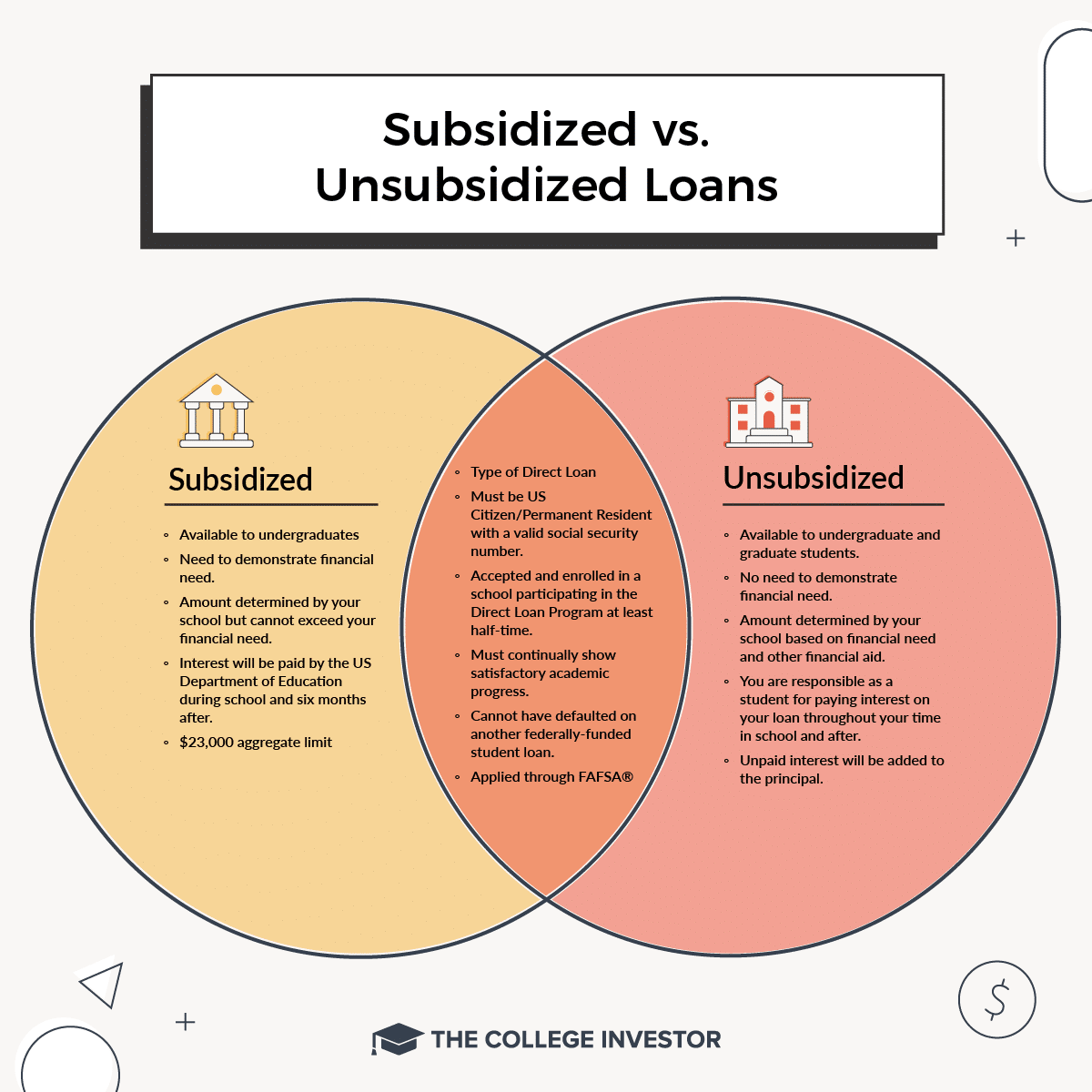

Supply: The Faculty Investor
Whenever you take out a scholar mortgage (or another time kind of mortgage), you need to pay curiosity. Curiosity is solely the price of borrowing cash. If the curiosity is tacked onto your loans, it could actually turn into what’s known as capitalized curiosity.
With each federal and personal scholar loans, curiosity begins accruing instantly. Curiosity doesn’t go away since you aren’t making funds. As a substitute the curiosity you owe provides up over time.
Pupil mortgage lenders monitor your mortgage stability and any unpaid curiosity you owe. And at sure instances, that curiosity can “capitalize,” which can trigger you to pay even extra in curiosity fees over time. It’s vital to grasp how capitalized curiosity works so to handle your scholar loans successfully. Here is what it’s worthwhile to know.
What Is Capitalized Curiosity?
Capitalized curiosity is curiosity that you just owe, however didn’t pay when you have been at school, whereas your loans have been in deferment or forbearance, or when you have been on an Revenue-Pushed Compensation (IDR) plan.
Everytime you depart a time of modified cost and re-enter regular compensation, this unpaid curiosity is added to your principal. Meaning the unpaid curiosity goes to $0, and your mortgage stability goes up by the quantity of unpaid curiosity you owe.
On the level, you formally turn into chargeable for paying off the quantity you borrowed plus the unpaid curiosity fees. So as soon as capitalization occurs, you will primarily be paying “curiosity on curiosity” for the rest of your mortgage’s life.
How Does Capitalized Curiosity Trigger Mortgage Balances To Develop?
Capitalized curiosity is the rationale that scholar mortgage balances can develop over time, even for those who do not borrow any extra money. Take into account a school freshman who borrows $10,000 in unsubsidized direct loans. At an rate of interest of 5%, curiosity on the mortgage accrues at a charge of $500 per yr.
4 years later, when the brand new graduate begins repaying, they may owe $10,000 + $500 per yr in capitalized curiosity. Meaning they owe $12,000 as an alternative of the unique $10,000 borrowed.
Unpaid curiosity may also accrue in case your month-to-month mortgage cost is lower than the overall quantity of curiosity you owe, which might occur for debtors on Revenue-Pushed Compensation (IDR) plans. If the borrower doesn’t pay that curiosity, it would accrue. And if the borrower later leaves the IDR plan, that accrued curiosity will capitalize and be added to the mortgage stability.
Within the case of federal scholar loans, curiosity solely capitalizes when the borrower or mortgage standing modifications, so it does not compound. In contrast, curiosity on most personal scholar loans will capitalize month-to-month.
Does Curiosity At all times Accrue After I’m Not Making Full Funds?
When you’ve got personal scholar loans, you could be pretty sure that curiosity is accruing and can capitalize whenever you enter compensation. Federal loans, nonetheless, are extra difficult.
The Division of Training could pay some or your entire unpaid curiosity in sure conditions. For instance, the federal government covers the curiosity fees on sponsored loans while you’re at school and through your 6-month grace interval. Nevertheless, the curiosity on unsubsidized loans does accrue and can capitalize if not paid earlier than your grace interval ends.
The sponsored vs unsubsidized distinction additionally comes into play for those who’re on an IDR plan and your month-to-month cost is lower than the quantity accruing in your loans. When you’re on PAYE or IBR plans, the federal government pays half or the entire curiosity that accrues on the loans for as much as three years. When you’re on the SAVE compensation plan, capitalized curiosity does not accrue – your mortgage stability can by no means develop.
After 3 years, curiosity begins to accrue as regular with PAYE and IBR. Study extra about how the Division of Training handles unpaid curiosity.

Supply: The Faculty Investor
When Does Curiosity Capitalize On Pupil Loans?
One of many attention-grabbing options of scholar loans is that the curiosity solely capitalizes when the mortgage modifications statuses. In any other case, the curiosity continues to accrue within the background with out capitalizing. Listed here are a couple of actions that might result in curiosity capitalization:
- Ending a deferment or forbearance interval
- Leaving PAYE or IBR compensation plans.
- Failing to confirm your earnings or household standing for IDR plans.
- Consolidating your loans
- Dropping eligibility for an IDR plan.
- Transferring your mortgage out of default into compensation.
Ought to I Attempt To Keep away from Paying Capitalized Curiosity?
A whole lot of consideration goes into avoiding capitalized curiosity. However, in some circumstances, the eye could also be misplaced. For instance, for those who graduate with $25,000 in scholar loans and the entire curiosity you accrue throughout faculty capitalizes, it would nonetheless solely add lower than $1,000 to your complete price of compensation. Most debtors would do higher to give attention to protecting their debt masses down as an alternative of obsessing over avoiding capitalization.
Nevertheless, if in case you have a big scholar mortgage stability, chances are you’ll wish to pay extra consideration to minimizing the frequency that your curiosity is capitalized. It is higher to maintain that curiosity within the “unpaid curiosity” class moderately than committing a capitalizing occasion. Meaning you’ll wish to keep away from switching IDR plans, keep away from consolidating loans too typically, and preserve updated in your IDR recertification paperwork.
However for those who do have a capitalizing occasion (resembling consolidating your debt or incomes an excessive amount of to qualify for IDR plans), it is not the top of the world. You will merely have to give you a plan to assault your loans. Fashionable methods embrace making extra funds every month, refinancing your scholar loans to a decrease charge, pursuing forgiveness applications, and extra. Discover ways to escape scholar debt!